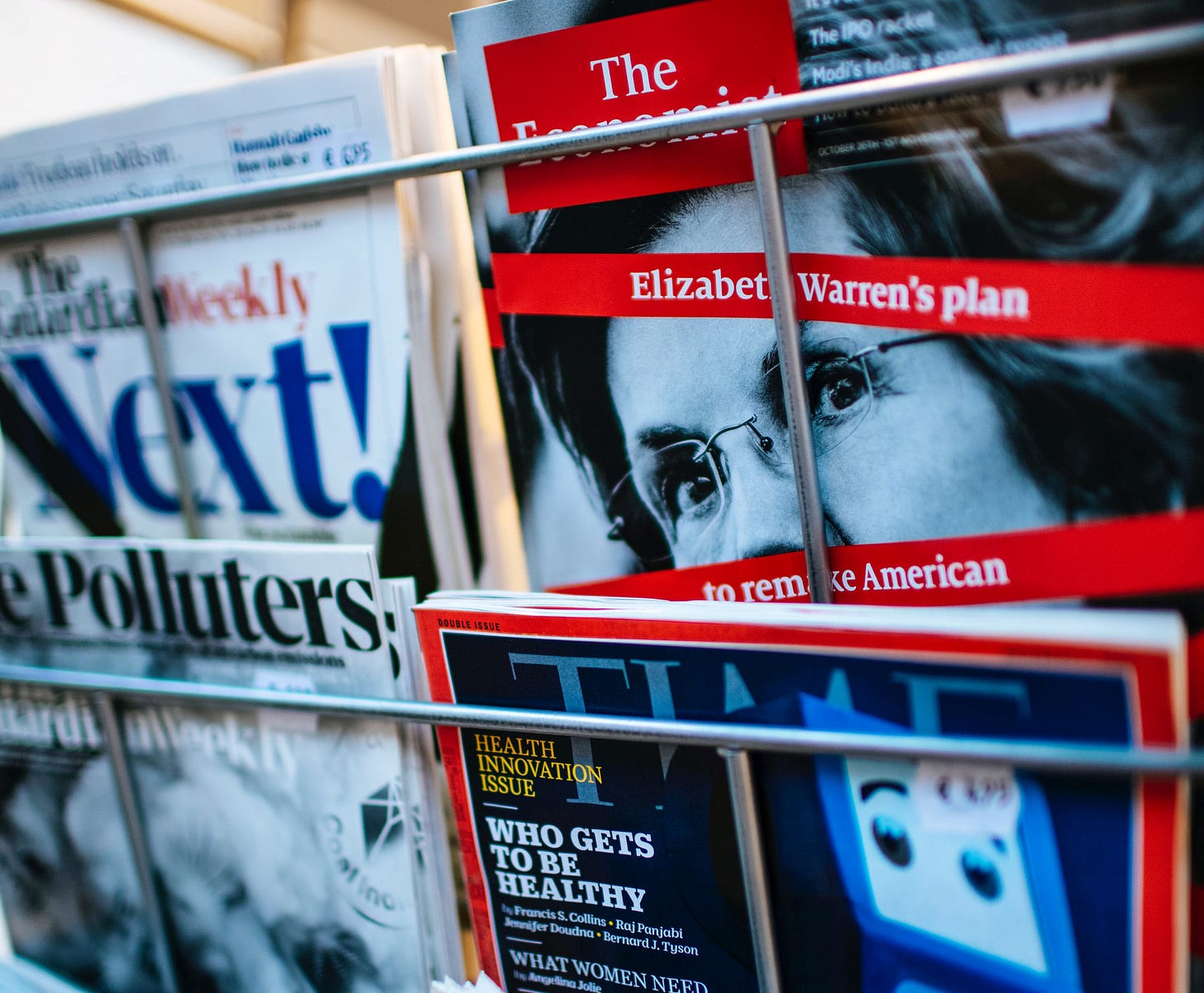In Praise of the Fourth Estate
Professional journalism is not The Enemy of the People. It is the single most important bulwark in the defence of democracy.
Photo: Markus Spiske, Unsplash
I have been watching the practice of journalism for over three decades.
As press secretary to a former Prime Minister of Canada and spokesman for others in public life, I was on the other side of the two-way mirror that separates those covering events and people, and those being covered. I witnessed the pulse and pace of journalists’ work and the nature of the media industry.
Political currents over recent years have reinforced an appreciation of the critically important role that journalism plays in sustaining the health of our democracy.
But, first, a few definitions.
This reflection is about professional journalism, populated generally by those trained at journalism schools and working for what might now be called “mainstream” news outlets, either in what is left of the newspaper business, whether in paper and newsprint or digital formats, television, or radio. The dynamics of each of these delivery methods are different, but the same journalistic standards apply. This is not about the Infowars of the information marketplace, or any of the other innumerable conspiracy theorists, or the proverbial blogger in his basement opining about his or her grievance of the day. Some of the latter claim to be journalists, but most are not. There is of course nothing wrong with offering opinion in an explosion of free speech, but that is what it is.
In mainstream media itself, opinion commentators are, of course, distinct. They are paid or exist to trumpet their personal views. Some claim to be journalists when it suits but evade the label when it does not. When Fox Network host Tucker Carlson was sued for slander last year, his own lawyers argued that he could not possibly be taken to be a journalist. In the decision of U.S. District Court judge Mary Kay Vyskocil on the case, she ruled that the “‘general tenor’ of the show should then inform a viewer that [Carlson] is not ‘stating actual facts’ about the topics he discusses and is instead engaging in ‘exaggeration’ and ‘non-literal commentary.’”
For responsible citizens in a modern democracy, access to accurate evidence-based information is crucial to help make informed decisions. The challenge is that our current world of information is highly polarized along lines cast by gut instinct. Disinformation and misinformation are hyper-accelerated through big tech funnels. News and opinion are increasingly blurred.
This challenge was brought into glaring relief by the Presidency of Donald J. Trump in the United States. Although his own legacy may fade away into history, the populist forces of grievance that he tapped will be alive and well for some time.
The planting of two seeds of his unruly agitation in the United States, patriarch of the representative democracies, is particularly chilling.
Firstly, Trumpism has dangerously designated the mainstream media as “the Enemy of the People,” which is arguably the nadir of the evolution of the liberal democracies. This was phraseology invented by the Jacobins in the Terror of the French Revolution, resurrected in early Russian Bolshevik politics, sharpened in the Stalinist purges, and adopted by Communists and Fascists alike to silence dissent.
Secondly, Trumpism has projected the idea that there are no facts, only interpretations, which allows for the creation of alternative realities that are perpetuated to this day. The concept of a fact is philosophically nuanced. The eminent British historian E.H. Carr wrote What Is History? to explore many of these very issues. Facts are not immune to the perceptions of the beholder and can be moulded by his or her intimate interaction with the subject matter. But this does not mean that they do not exist. The key is active criticism of sources to best understand and present context.
The fact is that most professional journalists exercise rigorous criticism of sources in an attempt to establish the facts of a situation. Explicit codes of ethics and standards require that they make every reasonable effort to “get it right.” Anyone who has ever been interviewed for a magazine article will know that factcheckers go through a story sentence-by-sentence to verify the accuracy of quotes and all statements made by the journalist. This is the norm and not the exception in mainstream media.
Journalists of course get stories wrong or overreach at times. But a mainstream news outlet usually publicly corrects the error and even apologizes. When has a politician or alt-news conspiracy blogger apologized for spreading distortions, reconstructed versions of events, untruths or outright lies? The media industry is driven by competition to secure returns for investors. But that is a separate issue from adherence to a code of journalistic ethics, which, in my experience, is generally taken seriously by professional journalists.
The Fourth Estate is not The Enemy of the People. To the contrary, it is the single most important bulwark in the defence of the people’s democracy.




